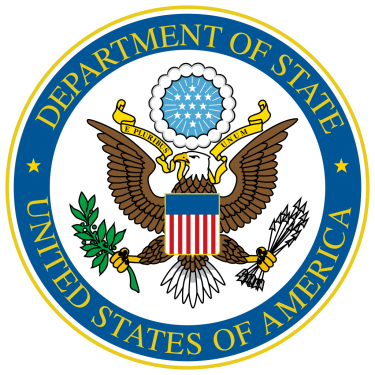Best Practices for Drafting Effective Letters Rogatory for Legal Issues
Best Practices for Drafting Effective Letters Rogatory for Legal Issues
Blog Article
Letters Rogatory Explained: Facilitating Legal Teamwork Between Countries

Meaning of Letters Rogatory
Letters rogatory are official demands made by a court in one territory to a court in another jurisdiction, looking for help in acquiring proof or testament for a legal action. This procedural device is necessary in the context of worldwide legislation, where legal systems might differ, and cross-border collaboration is necessary. Letters rogatory assist in the celebration of info that may be critical for settling instances, particularly in circumstances entailing intricate global problems.
Usually, these demands arise in civil, criminal, or management issues where a celebration calls for evidence that lies outside the territory of the asking for court. The letters work as a way to make certain that the principles of due process are maintained, making it possible for courts to accessibility evidence that could or else continue to be unattainable because of geographical or lawful obstacles.
Using letters rogatory is regulated by global treaties, reciprocal agreements, or residential legislations, which delineate the treatments and obligations of the courts included. It is essential to keep in mind that the execution of such requests is not guaranteed; they depend upon the regulations and methods of the territory obtaining the letter. Therefore, letters rogatory are an essential tool for cultivating legal participation and making sure justice across boundaries.
The Process of Issuing Letters Rogatory
Issuing letters rogatory entails a structured process that makes sure compliance with both worldwide and residential legal standards. The asking for party, normally a court or legal authority, drafts an official request outlining the nature of the help looked for, the proof or information needed, and the legal basis for the demand. This document must be exact to promote understanding by the international jurisdiction.

The following step includes transferring the letters rogatory to the marked international authority. This is often done through diplomatic networks or international lawful support structures, guaranteeing that the demand is gotten and acknowledged by the international court. The foreign court then refines the request according to its very own legal procedures, eventually reacting to the asking for event with the sought-after info or proof, hence helping with global legal collaboration.
Relevance in International Law
The importance of letters rogatory in global regulation can not be why not check here overstated, as they work as a vital mechanism for judicial collaboration throughout boundaries. These official ask for help in legal issues enable courts in one jurisdiction to inquire, proof, or the visibility of witnesses from an additional jurisdiction, consequently facilitating the management of justice in transnational instances.
Letters rogatory are especially vital in the context of globalization, where legal disputes frequently extend several countries. They make it possible for the collection of evidence that might otherwise be unattainable, making certain that lawful process are informed and reasonable. By fostering cooperation between judicial systems, letters rogatory help maintain the guideline of law and promote mutual respect amongst nations.
Additionally, the use of letters rogatory demonstrates a dedication to worldwide norms and concepts of participation, mirroring the interconnected nature of contemporary legal methods. It shows the relevance of adhering to recognized treatments and treaties, such as the Hague Convention, which provides a structure for these demands - Letters rogatory. Inevitably, letters rogatory boost the efficacy of legal procedures, guaranteeing that justice is not hindered by geographical limits
Obstacles and Limitations
In spite of their importance, letters rogatory face numerous obstacles and limitations that can impede their effectiveness. One key problem is the varying legal structures and procedures across territories, which can bring about misconceptions and delays in the execution of requests. Different countries may have distinctive needs for the validity of letters rogatory, complicating the process further.
In addition, the often drawn-out nature of international legal cooperation can hinder prompt access to proof or witnesses. This delay might adversely impact recurring investigations or lawful procedures, especially in cases calling for urgent action. Furthermore, the absence of sources and training in some jurisdictions can result in not enough handling of demands, leading to insufficient or insufficient reactions.
Cultural distinctions and varying mindsets towards lawful procedures can additionally present substantial obstacles. As an example, countries with less formal legal systems might battle to abide by the step-by-step rigor anticipated in letters rogatory. Finally, political stress in between nations can affect the readiness to implement requests, leading to a lack of participation and lessening the utility of this device in international legislation. These obstacles demand continual discussion and reform to boost the efficiency of letters rogatory in weblink lawful participation.
Case Studies and Instances

On the other hand, difficulties can emerge, as seen in an instance entailing a European country seeking evidence in an ongoing criminal matter from a non-EU nation - Letters rogatory. The procedure was delayed because of governmental obstacles and varying lawful criteria, eventually impeding the examination
These instances illustrate that while letters rogatory can facilitate global collaboration and speed up legal procedures, they also highlight the demand for clear interaction and understanding of lawful frameworks in between countries. Such study emphasize the value of refining this tool to boost performance and effectiveness in international lawful matters.
Verdict
In recap, letters rogatory offer as an essential system for facilitating legal teamwork between nations, making sure the collection of evidence and statement across jurisdictions. Their importance in international legislation can not be overstated, as they advertise due process and enhance the efficiency of cross-border legal process.
Letters rogatory are official requests made by a court in one territory to a court in another jurisdiction, seeking aid in obtaining evidence or testimony for a lawful proceeding. The requesting party, generally a court or lawful authority, composes a formal demand detailing the nature of the aid sought, the proof or information required, and the legal basis for the demand. The foreign court after that refines the demand according to its own legal treatments, inevitably responding to the asking for party with the desired info or proof, therefore helping with global legal participation.
Furthermore, the usage of letters rogatory demonstrates a dedication to international norms and concepts of cooperation, showing the interconnected nature of modern legal techniques.International legal participation through letters rogatory is not without its real-world ramifications, as highlighted by various situation researches that highlight both successes and difficulties.
Report this page